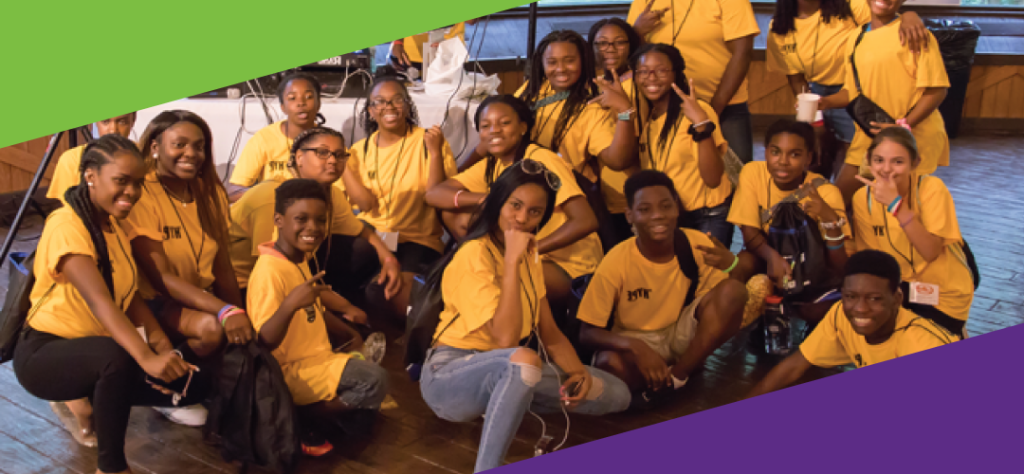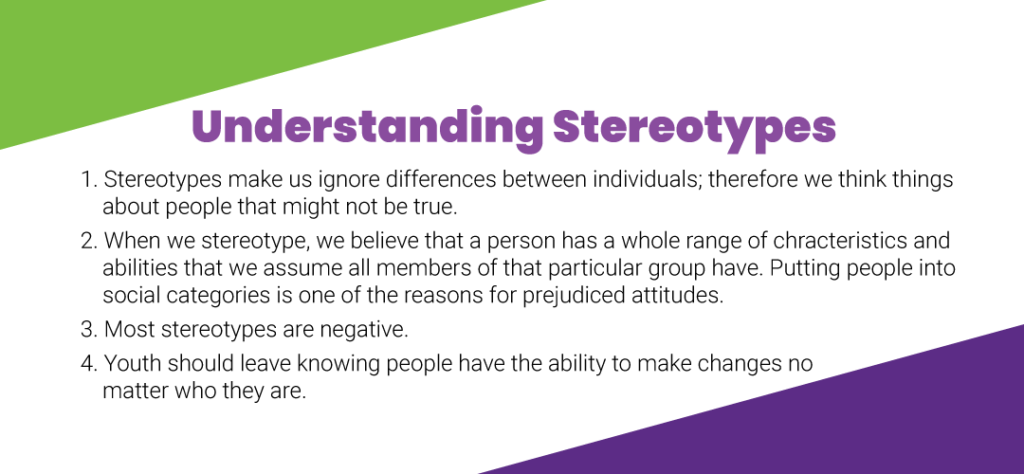 Is there anything more satisfying than teaching youth how to use their voice to make a difference in someone’s life and seeing it happen? What about showing community leaders that youth are motivated to make healthy change happen and they can get things done? Honestly, we can’t think of anything more satisfying than giving youth the tools they need to become community leaders.
Is there anything more satisfying than teaching youth how to use their voice to make a difference in someone’s life and seeing it happen? What about showing community leaders that youth are motivated to make healthy change happen and they can get things done? Honestly, we can’t think of anything more satisfying than giving youth the tools they need to become community leaders.Along the way, we built relationships with non-traditional partners to reach more youth and communities. The HYPE Project moved from one-year initiatives to multi-year endeavors to make a greater impact on the lives of community members. The youth advocacy initiative has even reached youth in multiple states and U.S. territories.
The sustainability of coalitions and community work has always been a key point for us, and we’re proud The HYPE Project has been around for ten years! We made it last by keeping HYPE at the forefront of our work in our strategic plan and through funding opportunities.

The HYPE Project and the Community Transformation Grant
How do you start a youth advocacy strategy without much guidance? You hire a social worker and lean on your partners. In 2012, Wholespire hired a Youth Engagement Manager to create a youth advocacy initiative. (We’ll tell you more about her later on in the year of our celebration.)
Thanks to the CDC’s Community Transformation Grant (CTG) awarded to the South Carolina Department of Health and Environmental Control (SCDHEC) in 2011, The HYPE Project was realized. Youth advocacy was a new healthy eating and physical activity strategy in public health. Communities could use to implement various youth advocacy activities to reach their desired policy, systems, and environmental changes.
Time was spent researching other youth advocacy organizations, missions, and programs to find the right fit for South Carolina. This work was taken seriously. We didn’t want to launch a new initiative that would fail. With the help of experts at the University of South Carolina Arnold School of Public Health and SCDHEC, The HYPE Project was born. (You’ll learn more about the experts later on, too.)
That same year, Wholespire chose three communities to pilot HYPE alongside other community projects related to the CTG. Fairfield County, Pickens County, and Richland County youth groups were the lucky ones to use The HYPE Project not only to create healthy change but to also build youth leaders. (Yes, you’ll hear more about the individuals who piloted HYPE and where they are now.)
Addressing Stereotypes and Health Disparities
During one of the first HYPE training sessions, youth learn about stereotypes and health disparities. Youth take part in team-building activities to show how stereotypes force people to place labels on others, even though the labels, or stereotypes, are mostly negative.

More time is spent on discussing health disparities since it’s a more complex topic to grasp and at the core of HYPE civic action projects. Youth learn that health disparities are:
- Unfair.
- Preventable differences.
- Experienced by disadvantaged groups.
- Groups can be defined by race or ethnicity, gender, education or income, disability, geographic location, or sexual orientation.
- Directly related to historical and current unequal balances of social, political, economic, and environmental resources.
Little did we know that, 10 years later, our staff would be going through similar training about biases, diversity, equity, and inclusion.
Changes to the Curriculum
Over the years, the HYPE curriculum has changed. Keeping an educational curriculum current with standards is important to the integrity of the program. So, in 2015, Wholespire contracted with a national expert to align it with the National Health Education Standards.
Evaluating every piece of our work and adjusting plans and content is an understanding at Wholespire, and this applied to The HYPE Project. To give HYPE teams more time to assess components of their chosen civic action project and implement it, Wholespire shortened the curriculum. Staff covered the deleted content during presentations and check-ins.
At the onset of the COVID-19 pandemic, more changes were made to allow funded HYPE teams to continue their civic action projects while keeping their safety and health in mind. Rather than bringing all funded HYPE teams together for their group training, Wholespire decided to turn the curriculum into a virtual experience. Staff recorded instructional videos from their living rooms, and graphics and energetic music were added to make the virtual experience interesting. And it worked well!
New Things are in Store
In preparation for The HYPE Project’s 10th anniversary, exciting changes will be announced soon. We can’t wait to reveal what’s new!
It’s no secret that we started an evaluation of The HYPE Project to create a more engaging, inclusive experience for youth. Phase 1 was completed in 2021 with the help of the University of South Carolina Youth Empowerment in Schools and Systems Lab. Here’s what they did:
- Defined process, intermediate, and long-term outcomes, and
- Assessed the curriculum to align with the National Health Education Standards.
More details about the completed evaluation and curriculum updates will be released later in 2022.
We’re proud to celebrate The HYPE Project’s 10th anniversary. It’s been a long road full of discovery and milestones, and we look forward to many more years of youth advocacy and civic action projects not only in South Carolina but also across the country.
